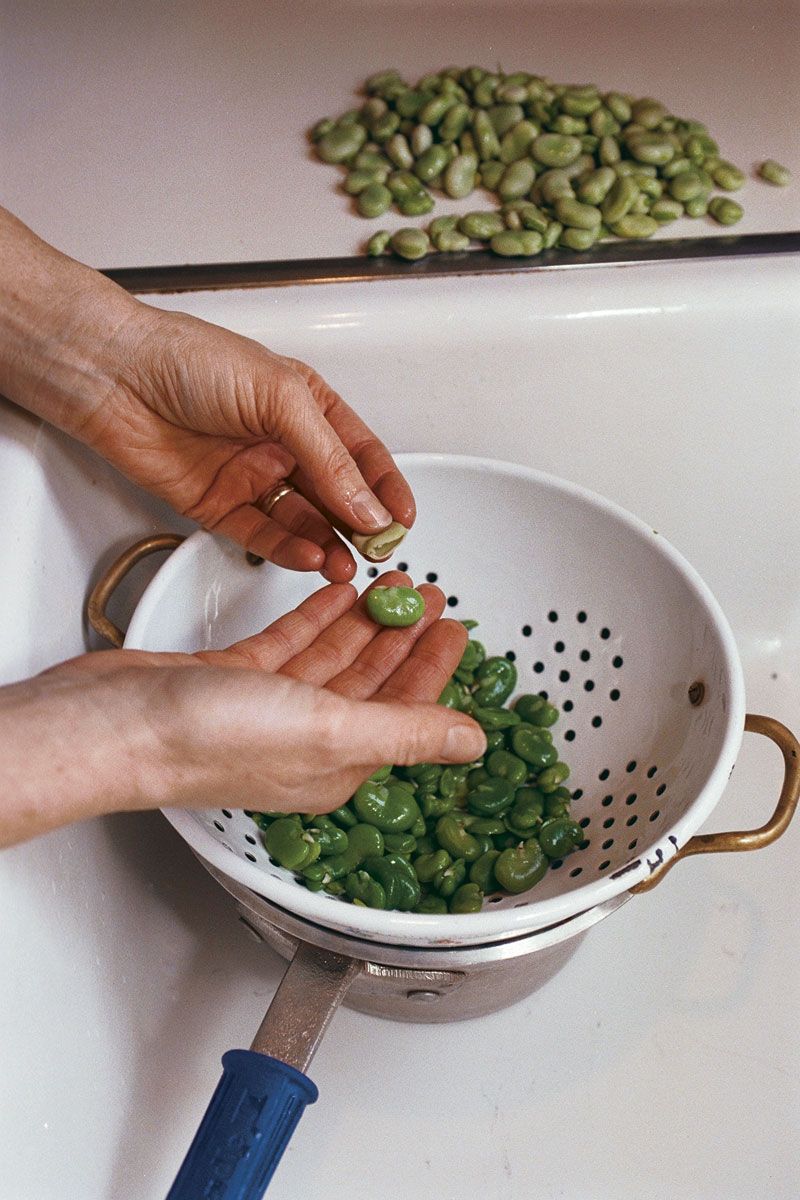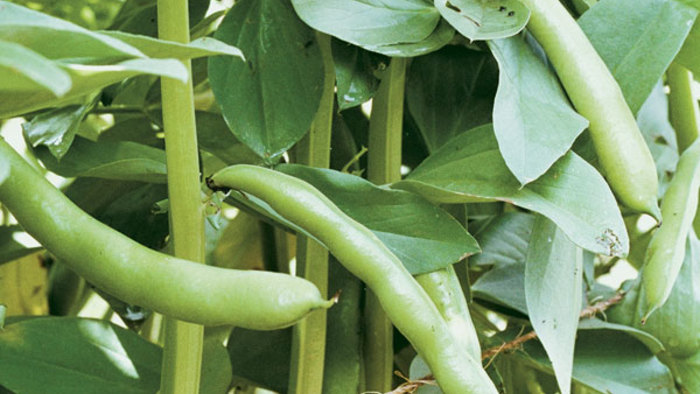
by Ed Miller
June 1997
from issue #9
Although underrated in the United States, favas are a favorite vegetable worldwide. They’re used often in European, Middle Eastern, Latin American, and Asian cuisines.
Favas are wonderfully versatile. In the garden they’re a great snack—I have trouble passing by them without popping a few raw ones. Young pods can be cooked like green beans. Shelled, the beans are delicious any size from small and tender, to full size and meaty, to dry and brown. Taste and texture change during these stages. Small beans are more tender but have less sugar. As the bean enlarges, the sugar increases, and so does the flavor. The mature bean becomes mealy as it dries. The cooking method should match the bean stage. You can even cook the tender plant tops.
Another important consideration is the removal of the skins on the individual beans after shelling them. The skin is tougher than the bean itself, and somewhat bitter. I think, although some connoisseurs disagree, that removing the skin greatly improves the taste and texture of favas. The trade-off is that it takes a lot of time. The skins slip off cooked beans much more easily than they do from raw beans, so I find it convenient to parboil a large batch of shelled favas for a minute or so, then store them in the refrigerator for quick future use. They keep about a week. If you’ve harvested favas and won’t be able to use them soon, it’s best to go ahead and shell them because mold easily develops in the fuzzy pod.
The following recipes are just a starting point. Fava Beans with Pancetta is a quick sauté that exemplifies the best of Italian cooking. The ingredients are few, and the technique simple, allowing the flavor of garden-fresh favas to shine. The Middle-Eastern-style Lamb and Fava Pod Sauce is essentially a stew to be served with a starch. For this recipe, you can use fava pods at any size up to 6 in. long, with small beans already formed inside. I don’t like to pick pods much smaller than 6 in., though, because I hate to sacrifice food production.


















Comments
Log in or create an account to post a comment.
Sign up Log in